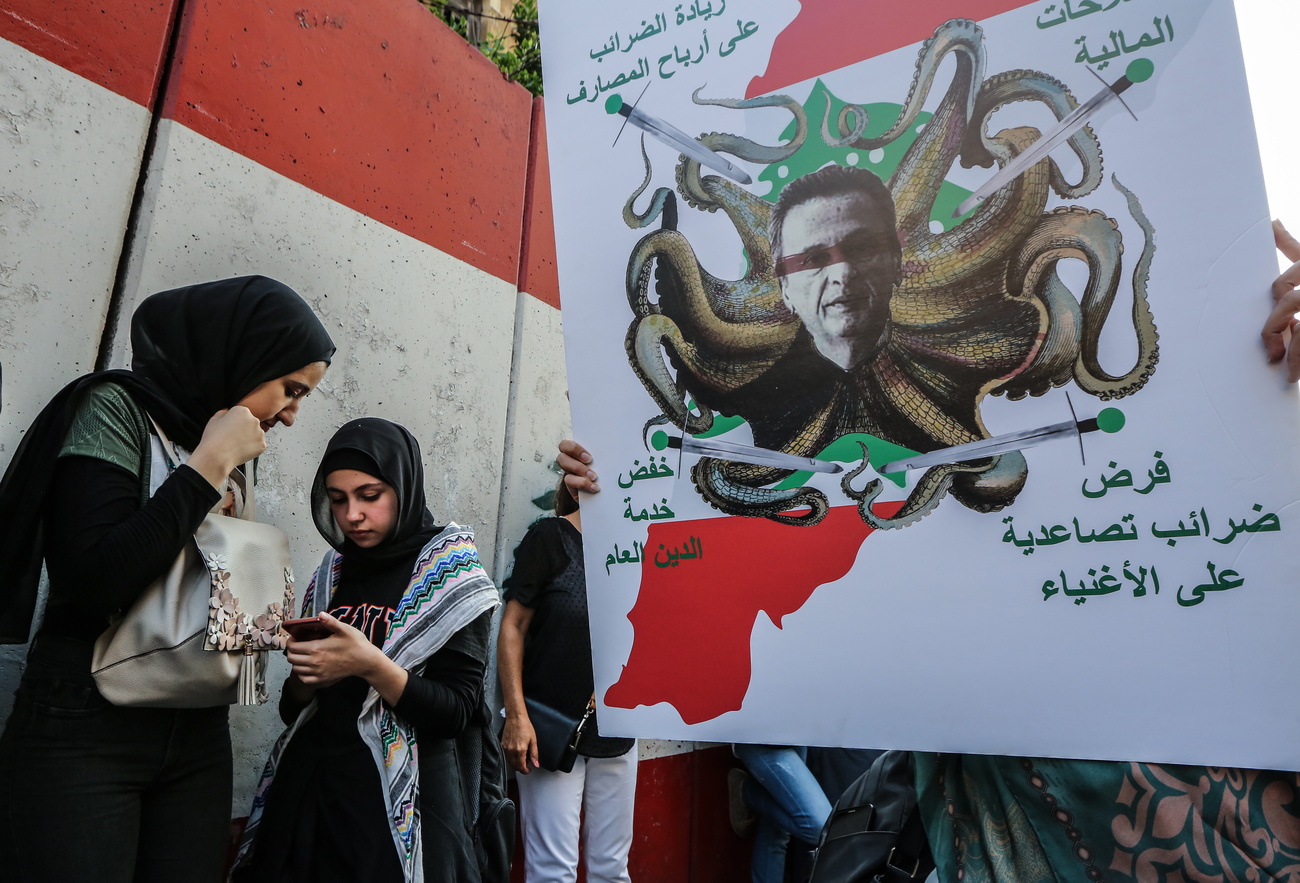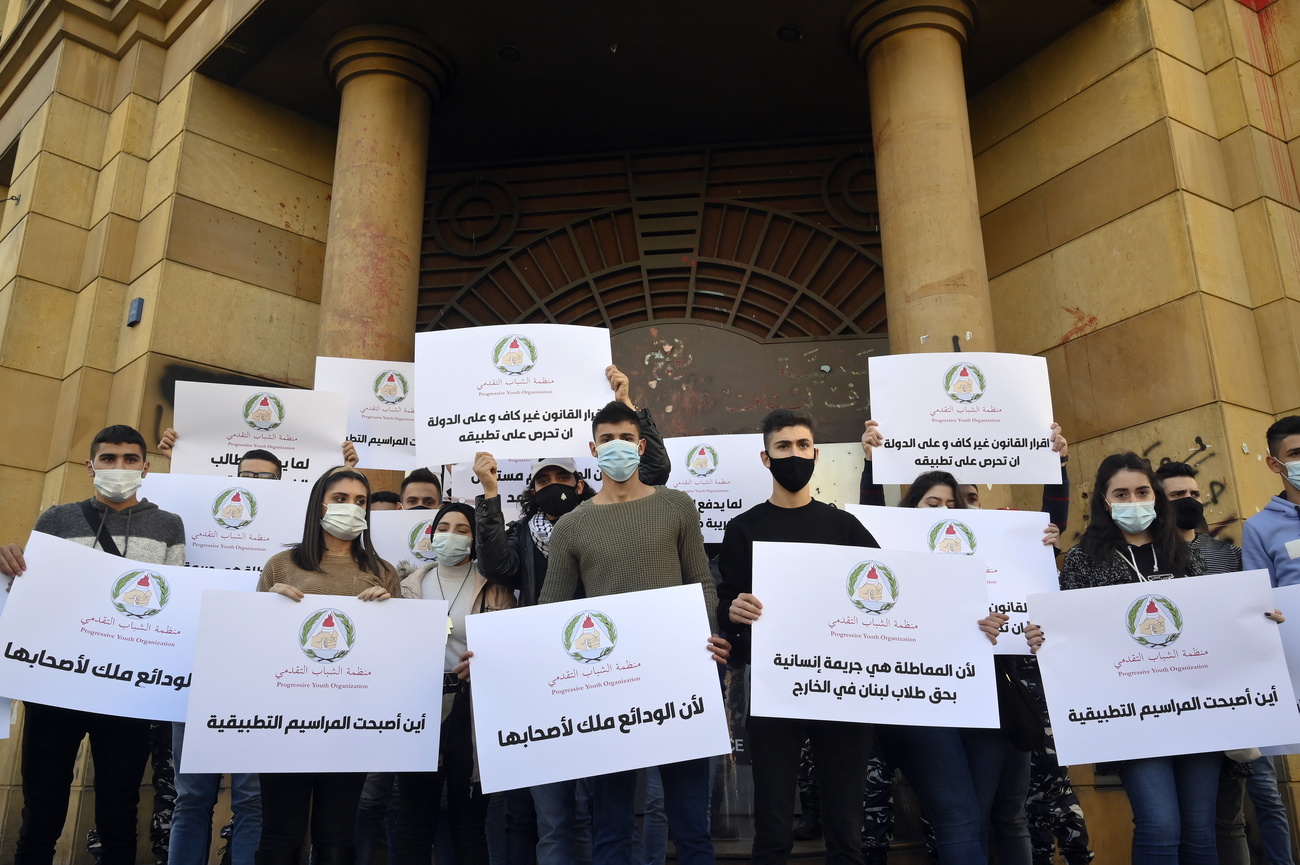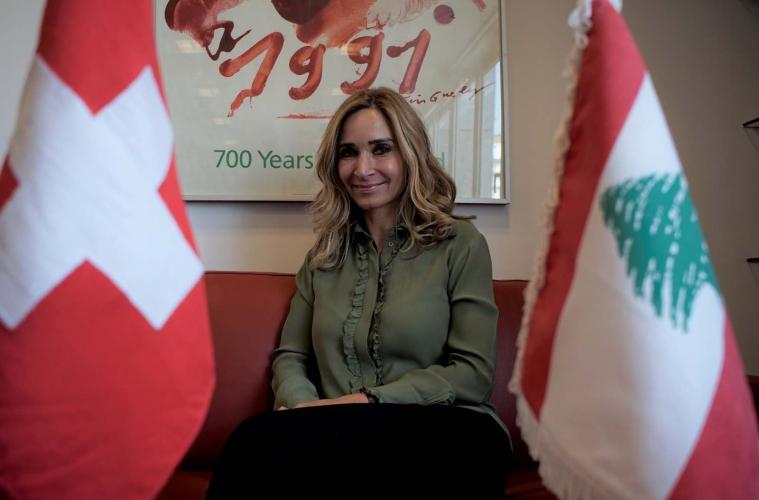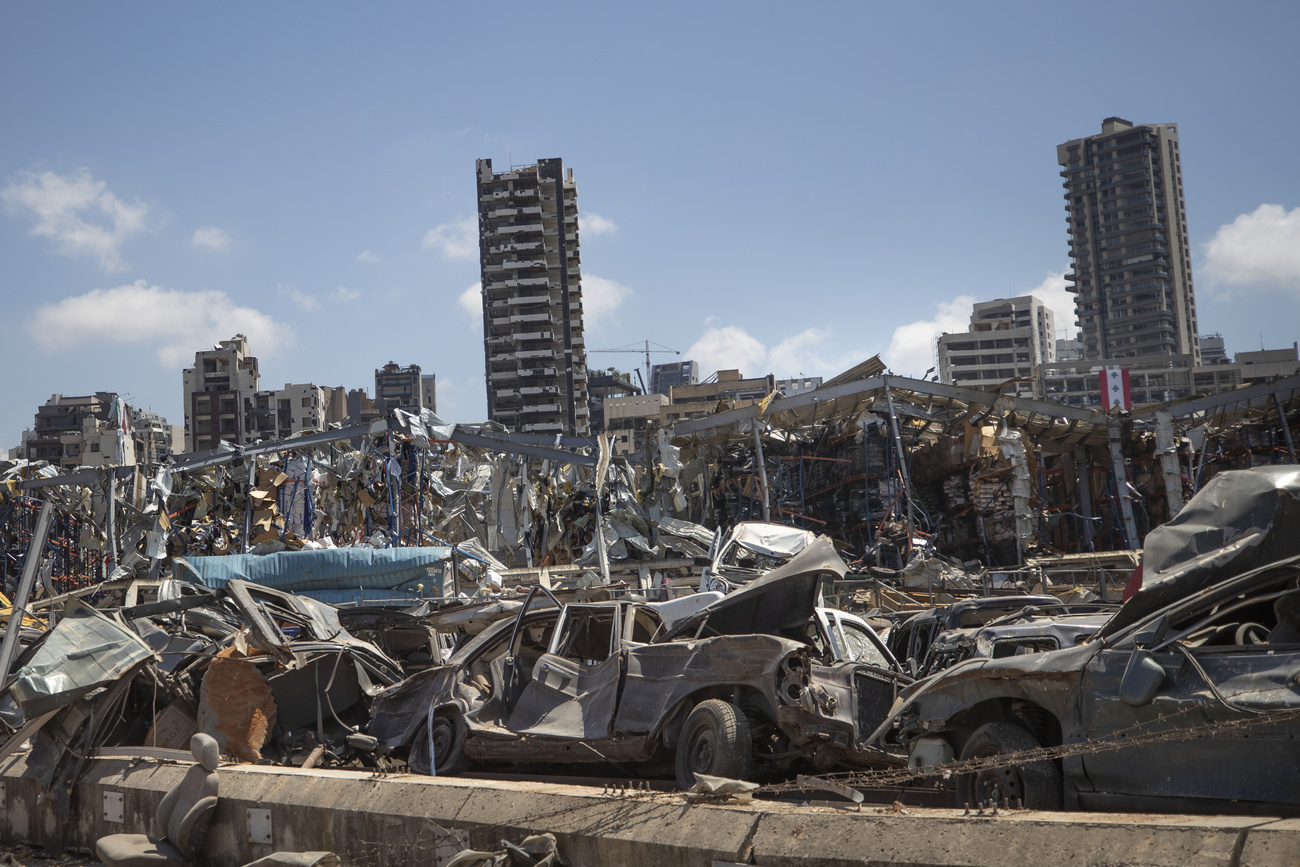Swiss probe Lebanon’s central bank chief over alleged $300m embezzlement

Switzerland’s attorney-general is investigating allegations that Lebanon’s central bank governor and his brother embezzled more than $300 million (CHF275 million) from that institution through transactions to a mysterious offshore company.
“Since April 2002 at least, it appears the central bank governor, Riad Salame, with help from his brother, Raja Salame, organised embezzlement operations, . . . exceeding $300 million to the detriment of the Banque du Liban [BdL],” the Swiss attorney-general’s office wrote in a letter to the Lebanese authorities requesting mutual legal assistance.

The letter, sent in November last year, was leaked and is publicly available online on a Lebanese news site. A Lebanese official confirmed the authenticity of the letter. The Swiss attorney-general’s office confirmed to the Financial Times a “criminal investigation into suspicions of aggravated money laundering . . . in connection with possible embezzlement to the detriment of the Banque du Liban”, and that it had requested help from Lebnese “competent authorities”. It declined to comment further.
In an interview with the FT this week, the central banker did not deny the transactions took place. But he said “not one dollar that was in the operations you mention was at the detriment of the BdL,” adding: “all these transactions were approved by the [BdL’s] central board”.
It is the latest scandal to hit Lebanon’s powerful longstanding central bank governor, once hailed for steadying the fragile nation through regional wars and the global financial crisis. But Salame, who claims he is the victim of a “smear campaign,” has been under fire since the collapse of the local currency, unleashing hyperinflation. With the country suffering its worst financial and economic crisis for three decades, many Lebanese blame him, as well as the nation’s politicians, for mismanaging monetary policy and reserves.

More
Swiss probing corruption linked to Lebanon central bank
Switzerland’s attorney-general is scrutinising transactions worth more than $330 million made between 2002 and 2015, from an account at BdL to a HSBC Switzerland account in the name of “Forry Associates”, according to the letter. Swiss investigators alleged that this obscure offshore company was controlled by Salame’s brother, Raja. Hundreds of millions were then funnelled from Forry to Swiss bank accounts controlled by both Salames, the investigators alleged in the letter.
The BdL had awarded Forry a non-exclusive brokerage contract in 2002, the letter states, signed by both Riad and Raja Salame. Four former senior Lebanese bankers, familiar with bond-trading at the time Forry was contracted by the BdL, said they had not heard of the company.
‘No special treatment’
Of the $333 million dollars transferred to Forry, $248m was funnelled to Raja Salame’s personal account at HSBC, Swiss investigators told their Lebanese counterparts in the letter, details of which have been widely reported in Swiss and Lebanese media. Just under $10 million went to two accounts which investigators alleged were controlled by Riad Salame, under the name of Panama-registered “Westlake Commercial Inc” at Julius Baer, and Swiss-registered “SI 2 SA” at EFG Bank in Zurich. More than CHF7 million flowed from SI 2 SA to a UBS account under the name “Red Street 10 SA,” which was used to buy Swiss property, the investigators alleged. Red Street translates to “Sharia Hamra” in Arabic, the Beirut street where BdL headquarters is located.
Riad Salame refused to clarify who ran Forry, if his brother signed the contract, or if he was behind Westlake or SI 2 SA. He said the BdL account which paid Forry was a “clearing account”, and that the money came from “participants of the operation”.
“[T]he amount you are talking about is over 14 years, not in one shot or one deal, so the average doesn’t exceed $20 million per year,” added Salame. Denying conflict of interest, Salame said Forry “had no exclusivity and therefore there is no special treatment”. When pressed that this business had earned millions of dollars, Salame said: “Is this illegal? What would be illegal [is] if we [ie. BdL] were paying the commission.”

More
Switzerland-Lebanon: what they have in common
No comment
Registered in the British Virgin Islands in 2001, Forry was dissolved in 2016, BVI records show. Leaked documents show Forry was owned by Nomihold, another BVI-registered company with hidden owners. The FT was unable to contact Nomihold.
Raja Salame, who sits on the board of Lebanese real estate giant Solidere, declined to comment on the allegations. “My integrity has never been questioned. I have always earned my money legitimately,” he told the FT.
Four former BdL central board members, who served during the relevant period and spoke on condition of anonymity, said they did not remember approving transactions to Forry. Riad Salame declined to show records confirming central board decisions, citing banking secrecy.
Swiss investigators, who attributed around $50 million in Swiss-held liquid assets to Riad Salame, are also probing some $15 million of transactions from bank accounts at BdL to Salame’s personal accounts at UBS, Credit Suisse and Banque Pictet & CIE between 2012 to 2019. Salame said the BdL accounts belonged to him, transferred his own money, and he denied transfers were made in 2019. He said the source of his personal wealth derived from $23 million that he earned as a banker before becoming governor in 1993.
Credit Suisse, HSBC Switzerland, UBS and Julius Baer said they were not permitted under Swiss law to comment on client matters. In a statement, Pictet & Cie said: “Our policy is not to comment on matters that are still the subject of an ongoing investigation, particularly when names of persons are at stake.” It said it was co-operating with the authorities.
Copyright The Financial Times Limited 2021

More
Switzerland mobilises efforts to help Lebanon

In compliance with the JTI standards
More: SWI swissinfo.ch certified by the Journalism Trust Initiative









You can find an overview of ongoing debates with our journalists here . Please join us!
If you want to start a conversation about a topic raised in this article or want to report factual errors, email us at english@swissinfo.ch.